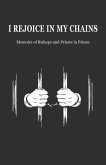In France, the German occupation is called simply the "dark years." There were only the "good French" who resisted and the "bad French" who collaborated. Marianne in Chains, a broad and provocative history drawing on previously unseen archives, firsthand interviews, diaries, and eyewitness accounts, uncovers the complex truth of the time. Robert Gildea's groundbreaking study reveals the everyday life in the heart of occupied France; the pressing imperatives of work, food, transportation, and family obligations that led to unavoidable compromise and negotiation with the army of occupation.
A startling and original view of the occupation of the French heartland, based on a new investigation of everyday life under Nazi rule In France, the German occupation is called simply the "dark years." There were only the "good French" who resisted and the "bad French" who collaborated. Marianne in Chains, a broad and provocative history, uncovers a rather different story, one in which the truth is more complex and humane. Drawing on previously unseen archives, firsthand interviews, diaries, and eyewitness accounts, Robert Gildea reveals everyday life in the heart of occupied France. He describes the pressing imperatives of work, food, transportation, and family obligations that led to unavoidable compromise and negotiation with the army of occupation. In the process, he sheds light on such subjects as forced labor, the role of the Catholic Church, the "horizontal collaboration" between French women and German soldiers, and, most surprisingly, the ambivalent attitude of ordinary people toward the Resistance. A great work of reconstruction, Marianne in Chains provides a clear view, unobscured by romance or polemics, of the painful ambiguities of living under tyranny.
A startling and original view of the occupation of the French heartland, based on a new investigation of everyday life under Nazi rule In France, the German occupation is called simply the "dark years." There were only the "good French" who resisted and the "bad French" who collaborated. Marianne in Chains, a broad and provocative history, uncovers a rather different story, one in which the truth is more complex and humane. Drawing on previously unseen archives, firsthand interviews, diaries, and eyewitness accounts, Robert Gildea reveals everyday life in the heart of occupied France. He describes the pressing imperatives of work, food, transportation, and family obligations that led to unavoidable compromise and negotiation with the army of occupation. In the process, he sheds light on such subjects as forced labor, the role of the Catholic Church, the "horizontal collaboration" between French women and German soldiers, and, most surprisingly, the ambivalent attitude of ordinary people toward the Resistance. A great work of reconstruction, Marianne in Chains provides a clear view, unobscured by romance or polemics, of the painful ambiguities of living under tyranny.








